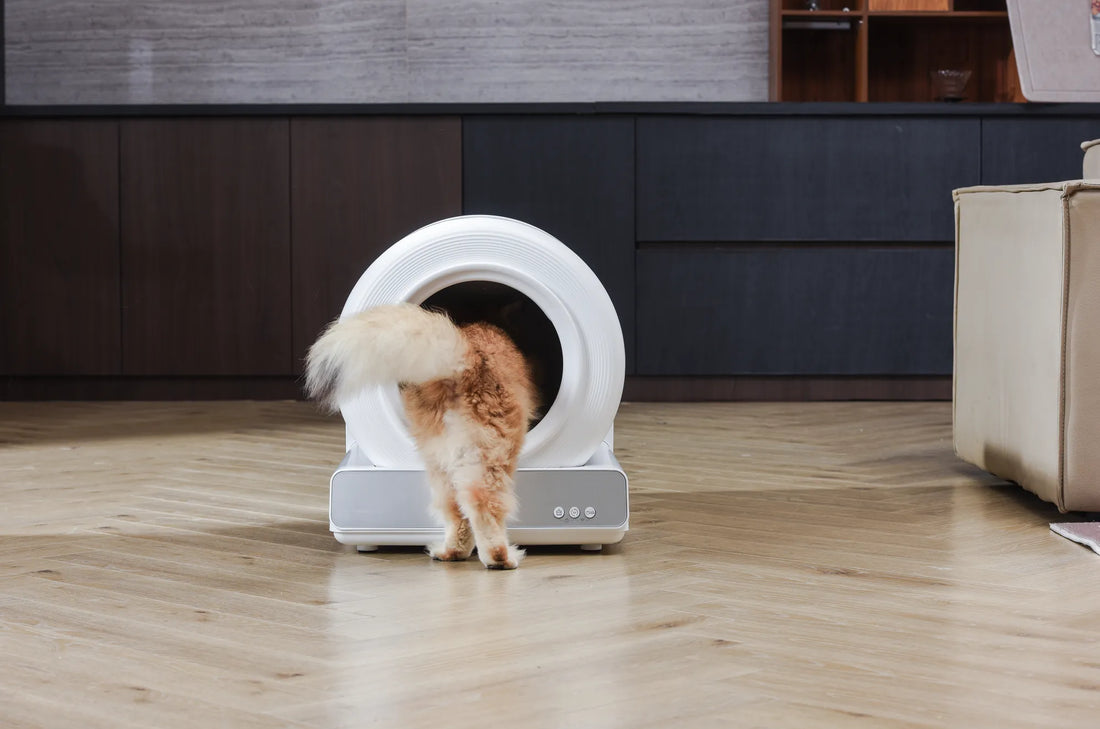If you've noticed that your cat keeps using the litter box but nothing happens, you're not alone. This behavior can be concerning for any pet owner, and understanding the underlying causes is crucial for ensuring your feline friend's health and well-being. In this article, we'll explore the possible reasons behind this behavior and provide actionable tips to help you address the issue.
Understanding the Behavior
When a cat repeatedly visits the litter box without producing any urine or feces, it's often a sign that something is amiss. This behavior can be caused by a variety of factors, ranging from medical conditions to environmental stressors. Understanding the root cause is the first step in finding a solution.
Medical Causes
One of the most common reasons for this behavior is a medical issue. Cats are prone to urinary tract infections (UTIs), which can cause discomfort and make it difficult for them to urinate. Other potential medical causes include bladder stones, kidney disease, or even constipation. If your cat is exhibiting this behavior, it's essential to consult a veterinarian to rule out any serious health concerns.
Stress and Anxiety
Stress and anxiety can also lead to changes in your cat's litter box habits. Cats are sensitive creatures, and changes in their environment, such as moving to a new home or the introduction of a new pet, can cause them to feel anxious. This anxiety can manifest in various ways, including frequent trips to the litter box without producing anything.
Litter Box Issues
Sometimes, the problem lies with the litter box itself. Cats can be picky about their litter box, and if it's not clean enough or if the type of litter has changed, they may avoid using it properly. Additionally, the location of the litter box can play a role. If it's placed in a noisy or high-traffic area, your cat may feel uncomfortable using it.
Dietary Factors
Diet can also impact your cat's litter box habits. A diet that's low in moisture can lead to dehydration, making it difficult for your cat to urinate. On the other hand, certain foods can cause constipation, leading to frequent but unproductive trips to the litter box. Ensuring that your cat has a balanced diet and access to fresh water is essential for maintaining their health.
Behavioral Causes
In some cases, the behavior may be purely behavioral. Cats can develop habits that are hard to break, and if they've learned that visiting the litter box gets them attention, they may continue to do so even if they don't need to use it. Understanding your cat's behavior and addressing any underlying issues is key to resolving this problem.
How to Address the Issue
If your cat keeps using the litter box but nothing happens, there are several steps you can take to address the issue. First, consult a veterinarian to rule out any medical conditions. Once you've ruled out health concerns, consider the following tips:
- Ensure the litter box is clean and placed in a quiet, accessible location.
- Provide a balanced diet and ensure your cat has access to fresh water.
- Reduce stress by maintaining a consistent routine and providing a safe, comfortable environment.
- Monitor your cat's behavior and seek professional advice if the issue persists.
By taking these steps, you can help your cat feel more comfortable and reduce the likelihood of this behavior occurring in the future.
When to Seek Professional Help
While many cases of this behavior can be resolved with simple changes, there are times when professional help is necessary. If your cat continues to exhibit this behavior despite your best efforts, or if you notice any other concerning symptoms, such as lethargy, loss of appetite, or changes in behavior, it's important to seek veterinary care. Early intervention can make a significant difference in your cat's health and well-being.
Understanding why your cat keeps using the litter box but nothing happens is essential for ensuring their health and happiness. By addressing the underlying causes and making necessary changes, you can help your feline friend feel more comfortable and reduce the likelihood of this behavior occurring in the future. Remember, your cat's well-being is in your hands, so don't hesitate to seek professional help if needed.

![[🎃Halloween Sale]UAHPET Stainless Steel Self-Cleaning Cat Litter Box](http://www.uahpet.com/cdn/shop/files/1-cat-litter-box.jpg?v=1759128420&width=1600)












